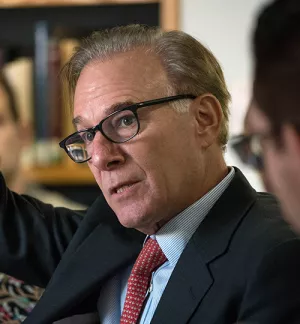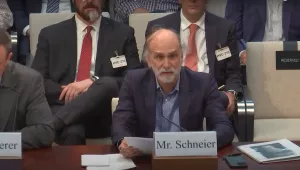During President Obama’s first term, there was hidden friction between powerful Cabinet secretaries and a White House that wanted control over the foreign-policy process. Now Obama has assembled a new team that, for better or worse, seems more likely to follow the White House lead.
The first term featured the famous “team of rivals,” people with heavyweight egos and ambitions who could buck the White House and get away with it. Hillary Clinton and Bob Gates were strong secretaries of state and defense, respectively, because of this independent power. Leon Panetta had similar stature as CIA director, as did David Petraeus, who became CIA director when Panetta moved to the Pentagon.
The new team has prominent players, too, but they’re likely to defer more to the White House. Secretary of State John Kerry has the heft of a former presidential candidate, but he has been a loyal and discreet emissary for Obama and is likely to remain so. Chuck Hagel, who will probably be confirmed next week as defense secretary, is a feisty combat veteran with a sometimes sharp temper, but he has been damaged by the confirmation process and will need White House cover.
John Brennan, the nominee for CIA director, made a reputation throughout his career as a loyal deputy. This was especially true these past four years, when he carried the dark burden of counterterrorism policy for Obama.
It’s a Washington truism that every White House likes Cabinet consensus and hates dissent. But that’s especially so with Obama’s team, which has centralized national security policy to an unusual extent. This starts with national security adviser Tom Donilon, who runs what his fans and critics agree is a “tight process” at the National Security Council (NSC). Donilon was said to have been peeved, for example, when a chairman of the Joint Chiefs of Staff insisted on delivering a dissenting view to the president.
This centralizing ethos will be bolstered by a White House team headed by Denis McDonough, the new chief of staff, who is close to Obama in age and temperament. Tony Blinken, who was Vice President Biden’s top aide, has replaced McDonough as NSC deputy director, and State Department wunderkind Jacob Sullivan, who was Clinton’s most influential adviser, is expected to replace Blinken. That’s lot of intellectual firepower for enforcing a top-down consensus.
The real driver, obviously, will be Obama, and he has assembled a team with some common understandings. They share his commitment to ending the war in Afghanistan and avoiding new foreign military interventions, as well as his corresponding belief in diplomatic engagement. None has much experience managing large bureaucracies. They have independent views, to be sure, but they owe an abiding loyalty to Obama.
In Obama’s nomination of people skeptical about military power, you can sense a sharp turn away from his December 2009 decision for a troop surge in Afghanistan. The White House felt jammed by the military’s pressure for more troops, backed by Gates and Clinton. Watching Obama’s lukewarm support for the war after 2009, one suspected he felt pushed into what he eventually concluded was a mistake. Clearly, he doesn’t intend to repeat that process.
Obama’s choice for CIA director is also telling. The White House warily managed Petraeus, letting him run the CIA but keeping him away from the media. In choosing Brennan, the president opted for a member of his inner circle with whom he did some of the hardest work of his presidency. Brennan was not a popular choice at the CIA, where some view him as having been too supportive of the Saudi government when he was station chief in Riyadh in the 1990s; these critics argue that Brennan didn’t push the Saudis hard enough for intelligence about the rising threat of Osama bin Laden. But agency officials know, too, that the CIA prospers when its director is close to the president, which will certainly be the case with Brennan and Obama.
Obama has some big problems coming at him in foreign policy, starting with Syria and Iran. Both will require a delicate mix of pressure and diplomacy. To get the balance right, Obama will need a creative policy debate where advisers “think outside the box,” to use the management cliche.
Presidents always say that they want that kind of open debate, and Obama handles it better than most. But by assembling a team where all the top players are going in the same direction, he is perilously close to groupthink.
Ignatius, David. “Out: Team of Rivals. In: Obama’s Guys..” The Washington Post, February 22, 2013




